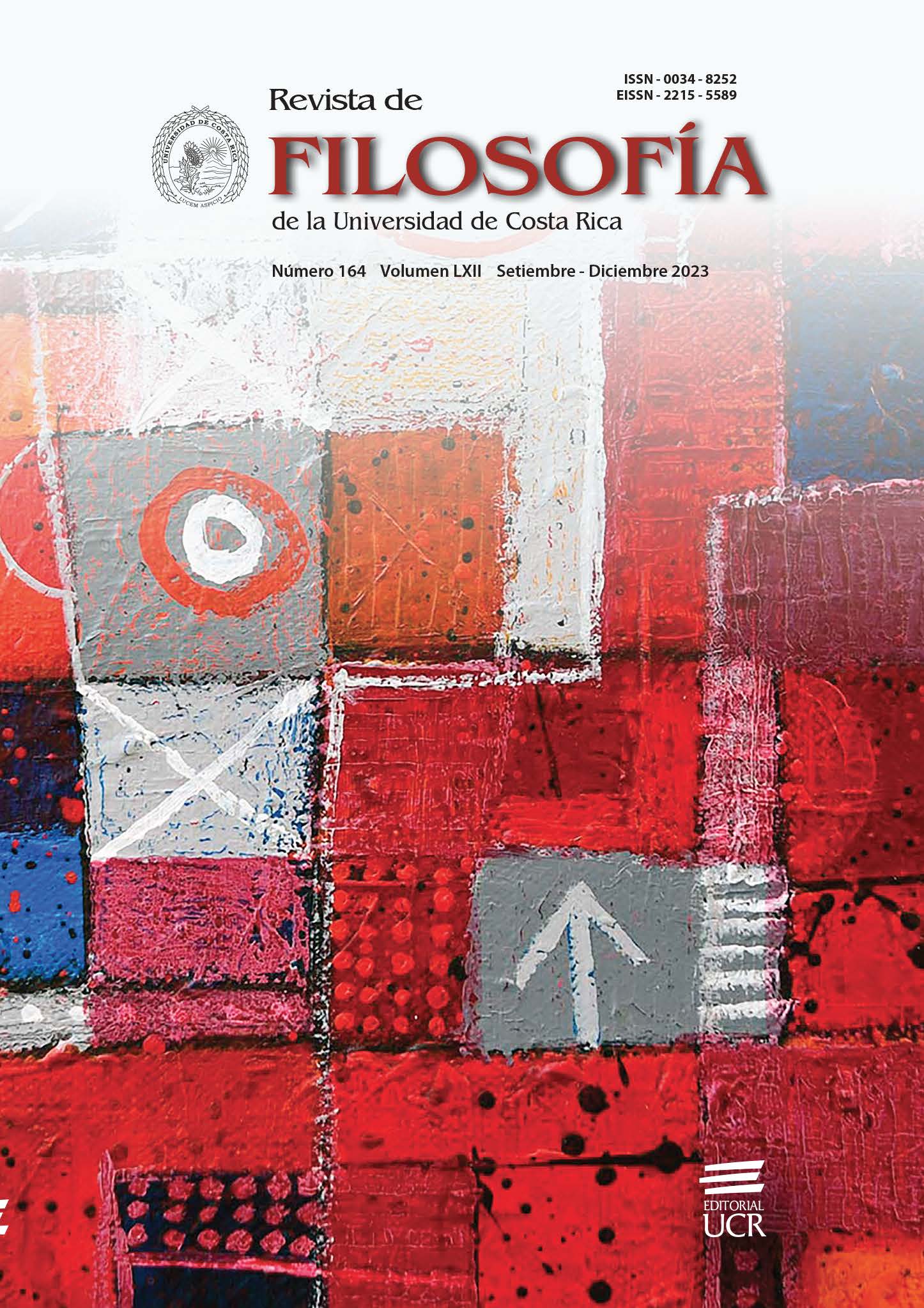Abstract
This article, in general terms, is an answer to the question posed by Alan Turing in a famous article from 1950 about whether digital machines think. This adds, within the framework of what has been called “dataism”, to one of the central debates in the philosophy of artificial intelligence. Hence, he summarily reviews the history of the latter, in which the moment of cybernetics acquires a certain milestone value, as well as Turing's contributions in the conception of the computable and the relationship of the test that he proposed with algorithmic reasoning.
References
Adorno, Theodor W.. 2011. Dialéctica negativa. Madrid: Akal.
Baudrillard, Jean. 1980. El intercambio simbólico y la muerte. Caracas: Monte Ávila.
Canguilhem, Georges. 1976. El conocimiento de la vida. Barcelona: Anagrama.
Copeland, Jack. 1996. Inteligencia artificial. Madrid: Alianza.
Churchland, Paul A..1999. Materia y conciencia. Introducción contemporánea a la filosofía de la mente. Barcelona: Gedisa.
Deleuze, Gilles. 1986. La imagen-tiempo. Estudios sobre cine 2. Barcelona: Paidós.
Deleuze, Gilles. 1988. Diferencia y repetición. Madrid: Ediciones Júcar.
Fodor, Jerry A..1984. El lenguaje del pensamiento. Madrid: Alianza.
Han, Byung-Chul. 2014. Psicopolítica. Barcelona: Herder.
Hui, Yuk. 2020. Fragmentar el futuro. Ensayos sobre tecnodiversidad. Buenos Aires: Caja Negra.
Hui, Yuk. 2022. Recursividad y contingencia. Buenos Aires: Caja Negra.
Hopcroft, John E. – Ullman, Jeffrey D..1983. Introducción a la teoría de autómatas, lenguajes y computación. México D.F. :Compañía Editorial Continental.
Kittler, Friedrich A..2018. La verdad del mundo técnico. Ciudad de México: Fondo de Cultura Económica.
Kurzweil, Ray. 2021. La singularidad está cerca. España: Lola Books.
Marrati, Paola.2004. Gilles Deleuze. Cine y filosofía. Buenos Aires: Nueva Visión.
McCorduck, Pamela. 1991. Máquinas que piensan. Madrid: Tecnos.
Moravec, Hans. 1990. El hombre mecánico. El futuro de la robótica y la inteligencia humana. Barcelona: Salvat.
Nietzsche, Friedrich. 1998. Sobre utilidad y perjuicio de la historia para la vida. Córdoba: Alción.
Penrose, Roger. 1991. La nueva mente del emperador. Madrid: Mondadori.
Russell, Stuart – Norvig, Peter. 2008. Inteligencia artificial. Un enfoque moderno. México: Pearson Prentice Hall.
Sadin, Eric. 2020. La inteligencia artificial o el desafío del siglo. Buenos Aires: Caja Negra.
Serle, John. 1985. Mentes, cerebros y ciencia. Madrid: Cátedra.
Simondon, Gilbert. 2007. El modo de existencia de los objetos técnicos. Buenos Aires: Prometeo.
Turing, Alan. 1936. “On computable numbers, with an application to the Entscheidungsproblem”, Proceedings of the London Mathematical Society, 2, 42, pp. 230-265.
Turing, Alan. 1950. “Computing intelligence and machinery” en: Mind, New Series, 59 (236) pp. 433-460.
Wiener, Norbert. 1988. Cibernética y sociedad. Buenos Aires: Sudamericana.
Comments

This work is licensed under a Creative Commons Attribution-NonCommercial-NoDerivatives 3.0 Unported License.
Copyright (c) 2023 Rubén H. Ríos

